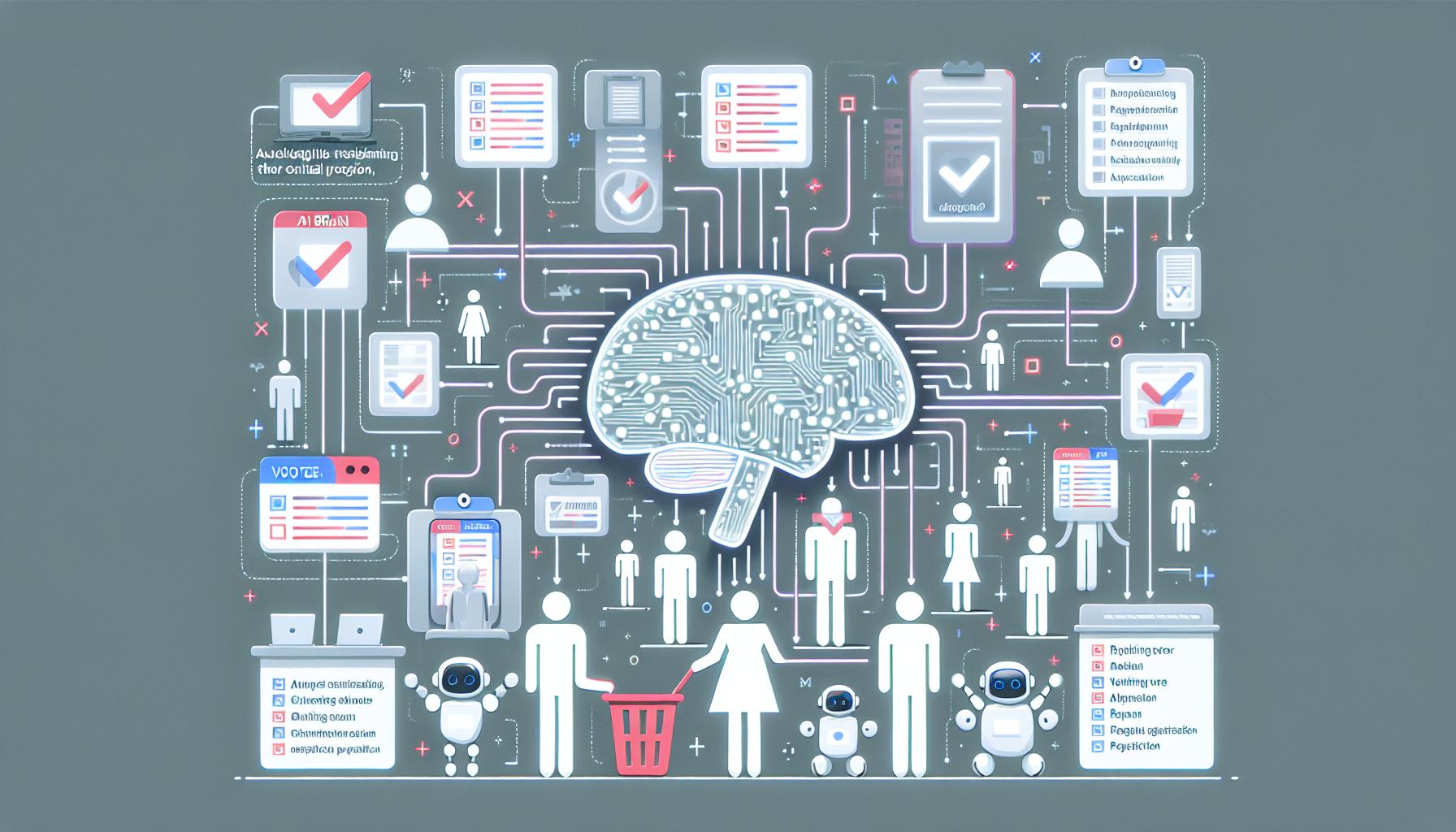AI in Voter Registration: Streamlining Processes and Ensuring Accuracy

Introduction
In the age of digital transformation, Artificial Intelligence (AI) is making significant strides across various sectors, including voter registration. The traditional voter registration process is often marred by inefficiencies, inaccuracies, and administrative burdens. However, AI technologies offer a promising solution to these challenges by automating data entry, verifying voter identities, and updating voter rolls in real-time. This not only enhances accuracy but also reduces the workload on administrative staff. Furthermore, AI-driven chatbots can assist voters in navigating the registration process, answering frequently asked questions, and providing information on polling locations. This article delves into how AI can revolutionize voter registration, improve voter engagement, and ultimately, increase participation in the democratic process.
Automating Data Entry
One of the most labor-intensive aspects of voter registration is data entry. Traditional methods involve manual input, which is not only time-consuming but also prone to human error. AI technologies can automate this process, ensuring that data is entered quickly and accurately. Optical Character Recognition (OCR) and Natural Language Processing (NLP) are two AI technologies that can be leveraged for this purpose. OCR can scan and digitize handwritten or printed forms, converting them into machine-readable text. NLP can then analyze and categorize this text, ensuring that all relevant information is accurately captured and stored. This automation significantly reduces the time and effort required for data entry, allowing administrative staff to focus on more critical tasks.
Verifying Voter Identities
Ensuring the accuracy of voter identities is crucial for maintaining the integrity of the electoral process. AI technologies can play a pivotal role in this aspect by verifying voter identities in real-time. Machine learning algorithms can analyze various data points, such as government-issued IDs, social security numbers, and biometric data, to confirm the identity of a voter. This not only enhances the accuracy of voter rolls but also helps in detecting and preventing fraudulent activities. Additionally, AI can cross-reference voter information with other databases to identify and rectify discrepancies, ensuring that voter rolls are up-to-date and accurate.
Updating Voter Rolls in Real-Time
Maintaining accurate and up-to-date voter rolls is a continuous challenge for election authorities. Traditional methods of updating voter rolls are often slow and cumbersome, leading to outdated or inaccurate records. AI technologies can address this issue by updating voter rolls in real-time. Machine learning algorithms can continuously monitor and analyze data from various sources, such as government databases, social media, and public records, to identify changes in voter information. For instance, if a voter moves to a new address or changes their name, AI can automatically update the voter rolls to reflect these changes. This ensures that voter rolls are always accurate and up-to-date, reducing the risk of errors and discrepancies.
AI-Driven Chatbots for Voter Assistance
In addition to automating administrative tasks, AI can also enhance voter engagement and participation through AI-driven chatbots. These chatbots can assist voters in navigating the registration process, answering frequently asked questions, and providing information on polling locations. For instance, a voter can interact with a chatbot to find out how to register, what documents are required, and where their nearest polling station is located. This not only makes the registration process more accessible but also reduces the burden on election authorities by providing instant assistance to voters. Furthermore, AI-driven chatbots can be programmed to provide information in multiple languages, ensuring that all voters, regardless of their linguistic background, can access the information they need.
Conclusion
The integration of AI technologies in voter registration has the potential to revolutionize the electoral process. By automating data entry, verifying voter identities, and updating voter rolls in real-time, AI can enhance the accuracy and efficiency of voter registration. Additionally, AI-driven chatbots can assist voters in navigating the registration process, answering frequently asked questions, and providing information on polling locations, thus improving voter engagement and participation. However, the implementation of AI in voter registration also raises important questions that need to be addressed. How can we ensure the security and privacy of voter data? What measures can be taken to prevent biases in AI algorithms? How can we ensure that AI-driven systems are accessible to all voters, including those with disabilities? Addressing these questions is crucial for the successful integration of AI in voter registration. As we move forward, it is essential to continue exploring and refining AI technologies to ensure that they are used responsibly and effectively to enhance the democratic process.




